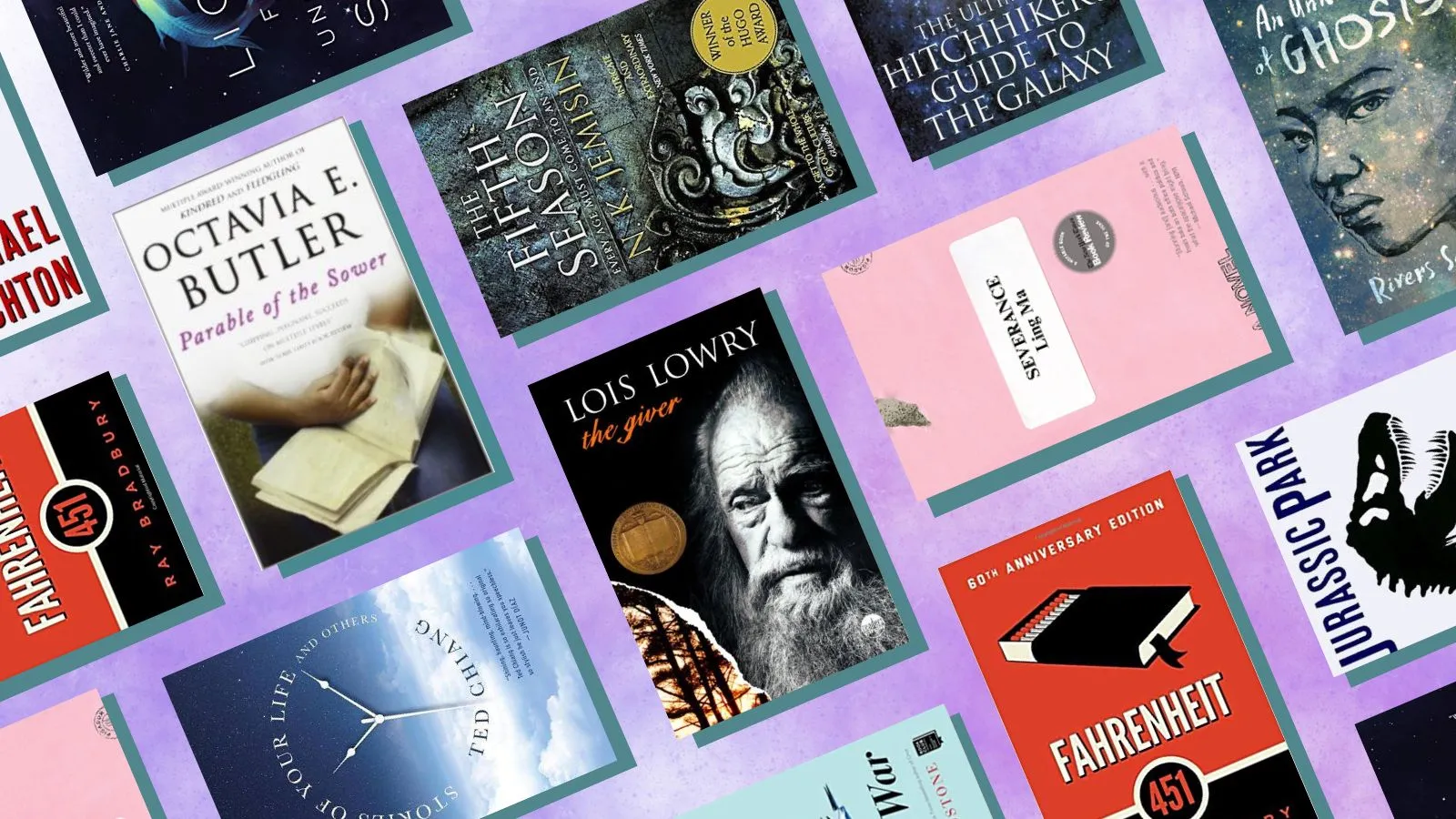
20 of the Most Thought-Provoking, Philosophical Science Fiction Books of All Time
Science fiction is such a broad genre that it’s hard to nail down as about any one “thing.” Plenty of sci-fi novels offer entertainment and needed escapism without anything else as a necessary focus. But the speculative nature of sci-fi makes it a natural mirror into our own lives, and the issues we as human beings currently face or fear are on the horizon.
In this list, I’ve compiled 20 of the most philosophical science fiction books of all time — the ones that draw the most thought-provoking comparisons to the real world. You’ll find some classics, like Parable of the Sower and Contact, as well as some releases from the past few years, like Light from Uncommon Stars and How High We Go in the Dark, that I think will become classics in time.
Once you’ve found some philosophical sci-fi recs to mull over, you’ll want to check out this Science Fiction Subgenre Primer to explore the genre in greater depth. Whether you’re in the mood for hard sci-fi, space westerns, or genre-blending comedies, you’re sure to find a facet of the genre you haven’t come across before.
Plus, for more recent sci-fi that has already made a lasting impact on the genre, visit the Most Influential Sci-Fi Books of the Past Decade — including Ninefox Gambit by Yoon Ha Lee.
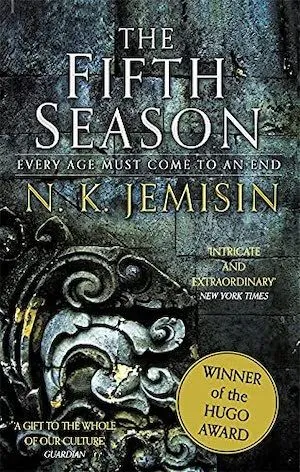
The Fifth Season (Broken Earth #1) by N.K. Jemisin
After finding her son dead and her husband on the run with her daughter, Essun discovers that the world is on the brink of descending into the Stillness — a time when resources are scarce, and wars erupt to determine who will have enough to survive. While facing the imminent Stillness, Essun must travel through danger and uncertainty to save her kidnapped daughter.
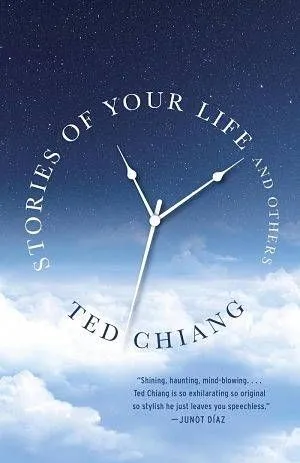
Stories of Your Life and Others by Ted Chiang
Ted Chiang’s award-winning short stories are known for their thought-provoking themes, and this collection brings together eight of his best works. In them, humans face the unfathomable — alien languages completely unlike our own, the fluidity of time, a blurring between the scientific and the divine, and more.

Cloud Atlas by David Mitchell
Told over many timelines, reaching from the 19th century to the far future, Cloud Atlas is ultimately a story of human connectedness and how that connection transcends everything else. It’s a very stylistically complex read, and it’s worth reading more than once to grasp the weight of its message.

The Hitchhiker’s Guide to the Galaxy by Douglas Adams
The first in a “five-part trilogy,” Hitchhiker’s Guide finds humor and delight in the absurdity of the vast universe. What begins as the worst day of Arthur Dent’s life takes a truly shocking turn when he learns it’s not just his house that faces demolition for a city bypass. No, the Earth’s suffering the same face. The Vogons are building an intergalactic bypass, you see.

The Lathe of Heaven by Ursula K. Le Guin
George Orr approaches psychologist Dr. William Haber with a strange development: his dreams can not only predict but shape the future. While his intentions start off pure, Dr. Haber soon grasps the potential of George’s reluctant power — and it leads him to troubling places.

Light from Uncommon Stars by Ryka Aoki
Shizuka Satomi is damned — Queen of Hell, in fact. She sold her soul decades ago for that title, and the only way she’ll free herself is by convincing seven of her violinist students to do the same.
But when two people, her seventh student and the owner of an unusual donut shop, challenge her distrust in humanity, Shizuka wonders if she can’t break free from the way things have always been — and when love is worth sacrificing all you have worked to achieve.

Contact by Carl Sagan
Ellie Arroway is a SETI astronomer with reason to believe that extraterrestrials have finally contacted Earth. But receiving their message is just the first step — interpreting it and responding is a harder, ultimately transcendent journey.

Parable of the Sower (Earthseed #1) by Octavia E. Butler
In a near-future United States on the brink of collapse, Lauren Olamina is the daughter of a preacher who believes it’s his duty to convert others in the last days. Lauren is an empath, and she can feel the pain of others as if it were her own.
When her family is suddenly killed, Lauren leaves the safety of the Los Angeles neighborhood she has spent her whole life in and must seek safety in an increasingly dangerous world.

Foundation by Isaac Asimov
Hari Seldon is a psychohistorian — the founder of the field, in fact — meaning that he can see into the future through the lens of the past. Although he lives in a golden age, he knows a time of darkness for humanity is coming — and he is determined to preserve as much knowledge as he can.

Fahrenheit 451 by Ray Bradbury
Fahrenheit 451 is a cautionary tale that (unfortunately) never loses its relevance to the present day. Guy Montag is a fireman in a near future where those in his line of work start fires rather than put them out. It’s the only way to protect society from books. But Guy finds value in books and preserving the knowledge they contain — even if he knows that belief could put his life in danger.

An Unkindness of Ghosts by Rivers Solomon
Aster is a neurodivergent woman who is enslaved on the HSS Matilda, a generation ship segregated by race. Though the ship claims to have saved humanity and is traveling to a paradise, Aster believes its purpose is more sinister.
Compelled to investigate the death of her mother, Aster discovers links between it and the death of the Matilda’s leader — and how those connections might lead the enslaved people on the ship to freedom.

Never Let Me Go by Kazuo Ishiguro
Told in a series of reflections, a woman named Kathy confronts her complicated childhood at a seemingly idyllic English boarding school and her friendship with classmates Tommy and Ruth. What she remembers brings a visceral perspective to the ethics of bioengineering and how, unchecked, it can lead to dehumanization.

Tell Me an Ending by Jo Harkin
This haunting, near-future sci-fi novel follows four patients offered a memory removal procedure. But even when the memories are gone, the trauma behind them can linger — and the reasons for removing a memory at all can be more complicated than the procedure itself.

Annihilation by Jeff Vandermeer
Four women, each an expert in their respective fields, are tasked with exploring Area X. Area X is a dead zone, and of the eleven expedition groups that have ventured into it, all were irreversibly changed. If they returned at all. But perhaps this time will be different.
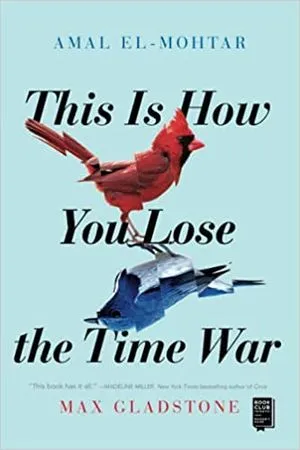
This is How You Lose the Time War by Amal El-Mohtar and Max Gladstone
Told in an experimental epistolary form, this novella is a love story between two women on opposite sides of an interdimensional war. Sometimes, keeping your enemies close can only work for so long before they don’t feel like enemies anymore.
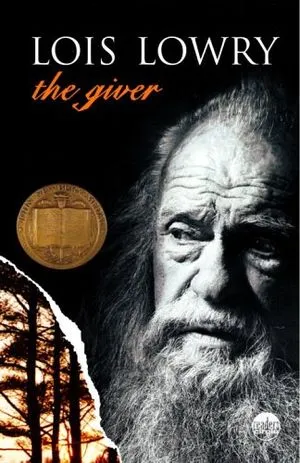
The Giver by Lois Lowry
On his 12th birthday, Jonas becomes the apprentice to the Giver — a person who carries the collective memory of their society. Being a Giver means being burdened with the complexities of being human that most of society would prefer to repress — indescribable joys and sorrows — and preparing to one day take the Giver’s role changes Jonas’s perceptive of his community in irrevocable ways.

Severance by Ling Ma
When the apocalypse finally comes, it’s business as usual for Candace Chen and the New York publishing company where she works. But as society disintegrates in the grip of a devastating pandemic, how long can her colleagues pretend like their biggest concerns are workplace-related?
When it does finally fall apart, how can Candace — a recent college grad who was already struggling to decide what she wants in life — cope with an entirely new set of existential crises?

Binti by Nnedi Okorafor
When the prestigious Oozma University accepts Binti’s application, she’s honored to represent the Himba people — even if it means leaving the world that raised her. But intergalactic travel is dangerous, often deadly, and Binti’s first test will be making it to Oozma University alive.

Jurassic Park by Michael Crichton
With academic funding as scarce as it is, archaeologists Alan Grant and Ellie Sattler jump to a call from an eccentric businessman to tour his latest venture — a theme park-slash-zoo that harnesses experimental cloning technology to bring dinosaurs back to life.
But as Frankenstein proposed nearly one hundred years before (which itself is a deeply philosophical read), terrible things happen when humans dabble in what they don’t fully understand.

Self-Portrait with Nothing by Aimee Pokwatka
Adopted as a child, Pepper Rafferty grew up with limited knowledge of her biological mother, Ula Frost. She knows that Ula was a painter and that her work focused on painting doppelgängers from other dimensions that she supposedly pulled into her own reality.
Pepper longs to understand Ula, particularly why she put Pepper up for adoption. Her search for knowledge leads her down a rabbit hole into alternate realities and how they might intersect.
Looking to read more books that shaped the sci-fi genre? Check out the bestselling science fiction books of all time.








